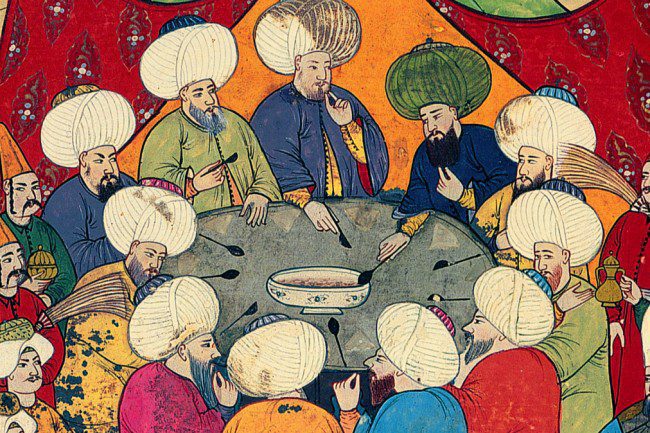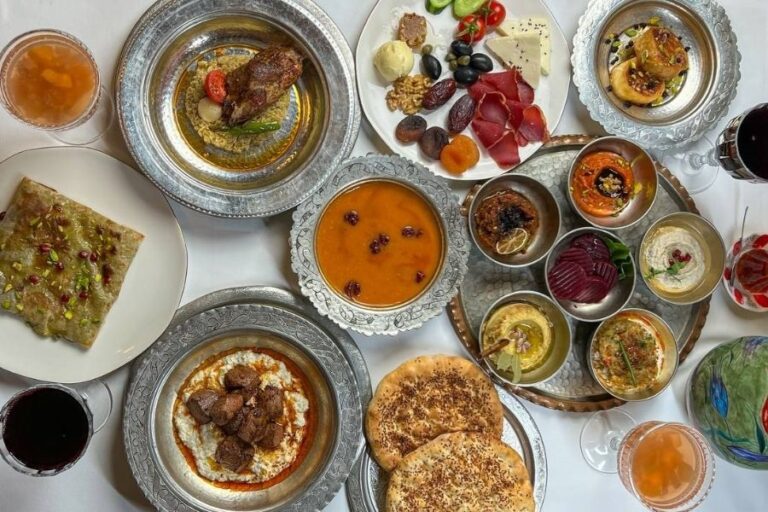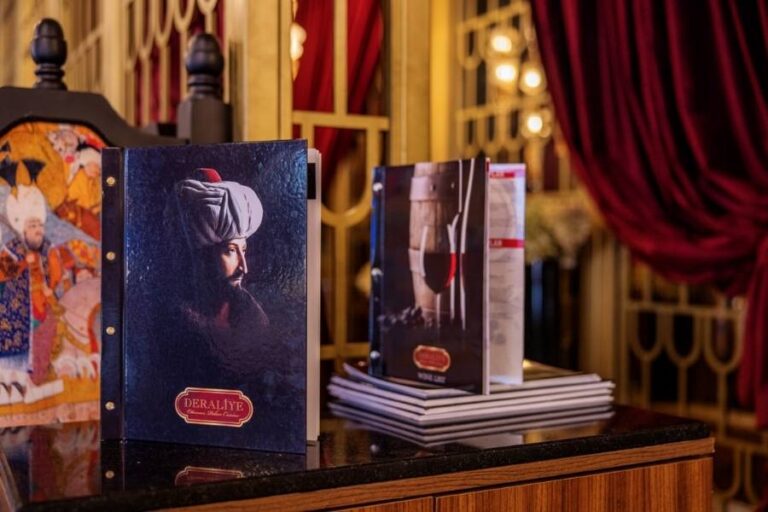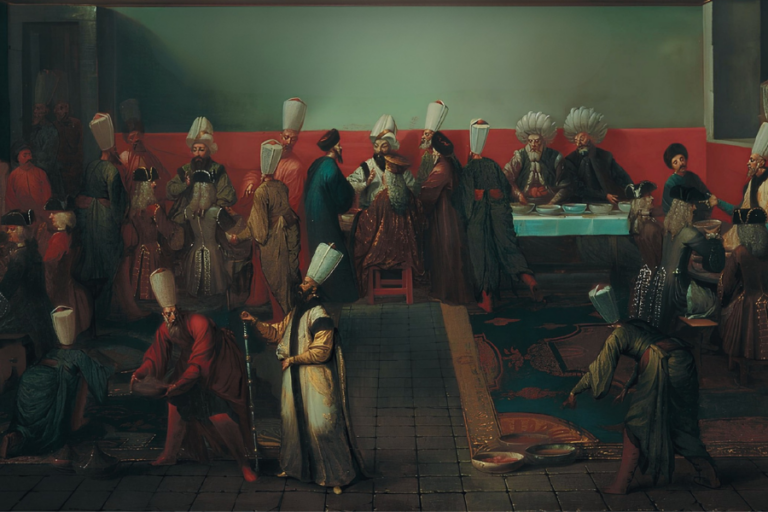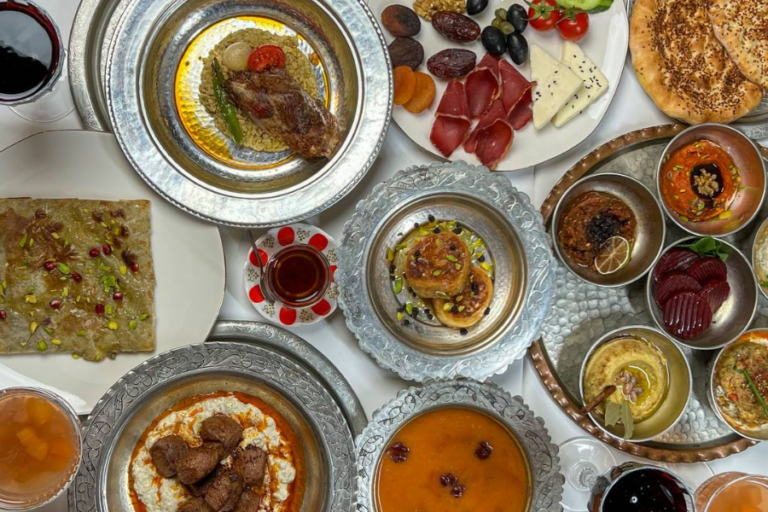During the month of Ramadan in the Ottoman Empire, the people considered giving iftar to their relatives as great worship and entered the race to host guests. During Ramadan, the doors were kept open at iftar times. Thus, everyone who stayed on the road, familiar or unfamiliar, would get their share of this treat. The custom of ‘Tooth Rent’, which is used in other banquets as well as for the month of Ramadan, is to give a gift to those invited to the iftar table when they leave. This custom was practiced in Ottoman culture. As Deraliye Ottoman Cuisine Restaurant, we continue to live and keep these customs alive.
Ramadan in the Ottoman Empire
Ramadan, the ninth month of the Islamic/Hijri calendar, has always been very special for Muslims and the Ottoman Empire was no exception. Despite the demanding nature of some prayers, especially during the month of Ramadan, such as fasting during the day, they were performed with great devotion and enthusiasm. Ramadan was a very lively and happy time.
Mosques and Decorations
During the month of Ramadan in Istanbul and many cities, food and beverage shops would be closed during daylight hours. Mosques would be in great preparation for the evening hours. It was brightly decorated, and a special way was to hang several rows of strings between the two minarets of the mosque and then hang oil lamps on these strings. In this way, fascinating light transitions could be achieved in mosques during the night.
Iftar
In the Ottoman Empire, fasting people were reminded by the sound of cannon that iftar time was approaching. At sunset, the call to prayer and once more cannon fire signaled that it was time to break the fast. There were usually appetizers at the iftar tables: Hz. According to the Sunnah of the Prophet, dates, and water, as well as fresh or dried fruit, a bite of bread with yogurt and lemonade.
Evening prayer was performed after the iftar table. They usually pray at home before sitting down with their families for the main meal.
Moving Nights of Ramadan
The dishes included in the main course actually depended on personal preference, but the foods mentioned in historical documents include soup, sliced cheese, eggs, fish, rice, and pastries.
During the month of Ramadan, the nights would be hectic. Entertainments were held by storytellers and poets. Market places, parks, or coffee shops would be crowded.
Suhoor
At sahur (morning meal), cannon fire would remind fasting people how much time they had left to eat. In smaller cities or villages, cannon fire was replaced by drummers. The meal was usually eaten about an hour before dawn and often contained leftovers from the previous day’s iftar. Prayers of gratitude were said at the end of the meal and just before dawn. Then they would perform the morning prayer and sleep.
Paying the Fitr Charity
Fitr sadaksı was collected during the month of Ramadan and distributed to the poor by government officials on the last or second night of the month. The head of the family was responsible for paying on behalf of his dependents, which was about two kilograms of grain per person.
The Generosity of Ottoman Officials in Ramadan
During the month of Ramadan, the Ottoman sultan and his officials personally sacrificed and then distributed the meat among the poor. Ottoman officials often opened their doors to the public in this month as a sign of hospitality and generosity, and they were especially kind to those under their authority. Melek Ahmed Pasha (Grand Vizier of the Ottoman Empire, 1650-51) is an example of this: every Monday and Friday during Ramadan, the doors of his house were left open for everyone to come and enjoy the refreshing drinks and listen to the hymns being sung.
Visiting Sacred Relics
The Ottoman sultan also participated in many traditional ceremonies held during Ramadan.
For example, on the fifteenth day of the month, the sultan and important palace officials, Hz. He used to visit the holy relics, such as his robe, banner, a strand of his beard, a lock of hair, and a piece of belongings, which were reported to belong to the Prophet Muhammad in private.



